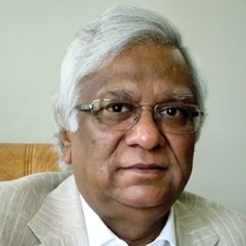
In an interview with www.tele.net.in, Ashok K. Aggarwal, Director General, TEMA discusses growing opportunities for the Indian telecom equipment manufacturers and challenges faced by them with competition from international telecom equipment manufacturers such as Huawei, Alcatel-Lucent, Ericsson, ZTE and Nokia Siemens Networks.
How big is the telecom equipment manufacturing industry in India? What level of growth do you expect in the next two to three years?
In previous financial year alone, the country installed telecom equipment worth Rs 600 billion out of which the domestic telecom manufacturing market share was about a meager Rs 15 billion. These numbers suggest that there is a huge market for telecom equipment waiting to be tapped.
Further, estimates show that if we fail to increase domestic manufacturing, the country’s bill on importing telecom equipment will increase to almost Rs 2500 billion. The question is why are we in a situation where despite having a huge market for telecom equipment the country is highly dependent on imports to meet its demands.
What steps should be taken by the government to support domestic manufacturing of telecom equipment?
The government indulgence is a must to encourage domestic manufacturing of telecom equipment given that telecom is a strategic industry. We cannot let our mobile networks be run by foreign companies thereby endangering our national security.
At present we have European and Chinese vendors dominating Indian telecom equipment market. These vendors operate on deferred payment and revenue sharing models, which effectively mean that they are not even taking money from operators for operating their network. This is a matter of serious concern and government should step in to set things right. Government’s sole purpose is not to ensure the health of mobile operator’ balance sheet rather it is to safeguard country’s national interest. Government has to interfere to ensure that domestic telecom manufacturers get a chance to cater to the huge telecom equipment market that exists.
A recent study by Booz & Co does not predict encouraging growth for domestic manufacturing in India. What is your assessment of the same?
Booz & Co is nothing but a consultancy firm which was commissioned to carry out a study on behalf of one section of mobile operators. It is working for a set of clients with a specific brief. The consultancy firm saying that there is no market for domestic telecom equipment manufacturers in the country is a complete fallacy. The entire report pre-conceives and propagates the theme that only foreign manufacturers are fit to compete for a share in the Indian telecom equipment market. Most, importantly, we sincerely wish that the government deals with the report in a manner that it deserves by completely ignoring it.
Few of the foreign vendors are already running their manufacturing units from the country. How do you expect domestic manufacturers to compete with players with experience and deep pockets?
Be it European or Chinese vendors, these companies are essentially carrying out just stick and paste job in the name of running manufacturing units in the country. Almost all the components /sub units are imported and they are just packaged and labeled in the country. Sadly, it’s country’s duty free import policy that has encouraged foreign countries to easily bring their products in the country. Foreign companies are marketing their Intellectual Property Rights (IPRs) in India and making good money which they are taking back to their respective countries.
We must learn from China as to how to encourage domestic manufacturing. When China invited foreign companies to invest in domestic manufacturing they asked these companies to help China develop their own IPRs and this is how companies such as Huawei and ZTE today have their own IPRs.
Domestic players cannot provide the kind of finances that foreign companies are extending to Indian mobile operators. Indian manufacturer is capable of providing same or in fact a better product to mobile operators but it cannot provide them the option of deferred payment like foreign players do. Therefore, it is essential for the government to provide forward linkage to market the product so that it does not die as a mere innovation.
What other industry issues are the focus areas for TEMA?
The Association is asking for allocation of spectrum for domestic manufacturers to carry out trials for their products and equipments. Then the issue of telecom towers causing health hazards is a crucial one. Towers emit high level of radiation and thus we need to look at solutions such as usage of low power BTS cells. With this we need to look at ways to increase in-building penetration of spectrum. It’s the government’s constitutional duty to safeguard the health of its people. It’s is sad to see that the government came out with a set of directives on radiation but postponed its implementation.
Efforts are also on to ensure that the industry is adhering to norms laid down as part of moving towards green telecom. Telecom Towers’ dependency on diesel need to be reduced by encouraging adoption of renewable energy.
Then there is this concern related to certification of equipment deployed in the network. Every country has a statutory body to carry out necessary checks before employment of equipment in the mobile network. Even India has what we call Telecom Engineering Centres (TECs) to keep a tab on the standards and specifications governing telecom equipment. But over the years they have become redundant. Government states that it does not have adequate staff to carry out these checks and balances. But what it can and must do is employ its Indian Telecom Service officers to carry out these necessary checks.